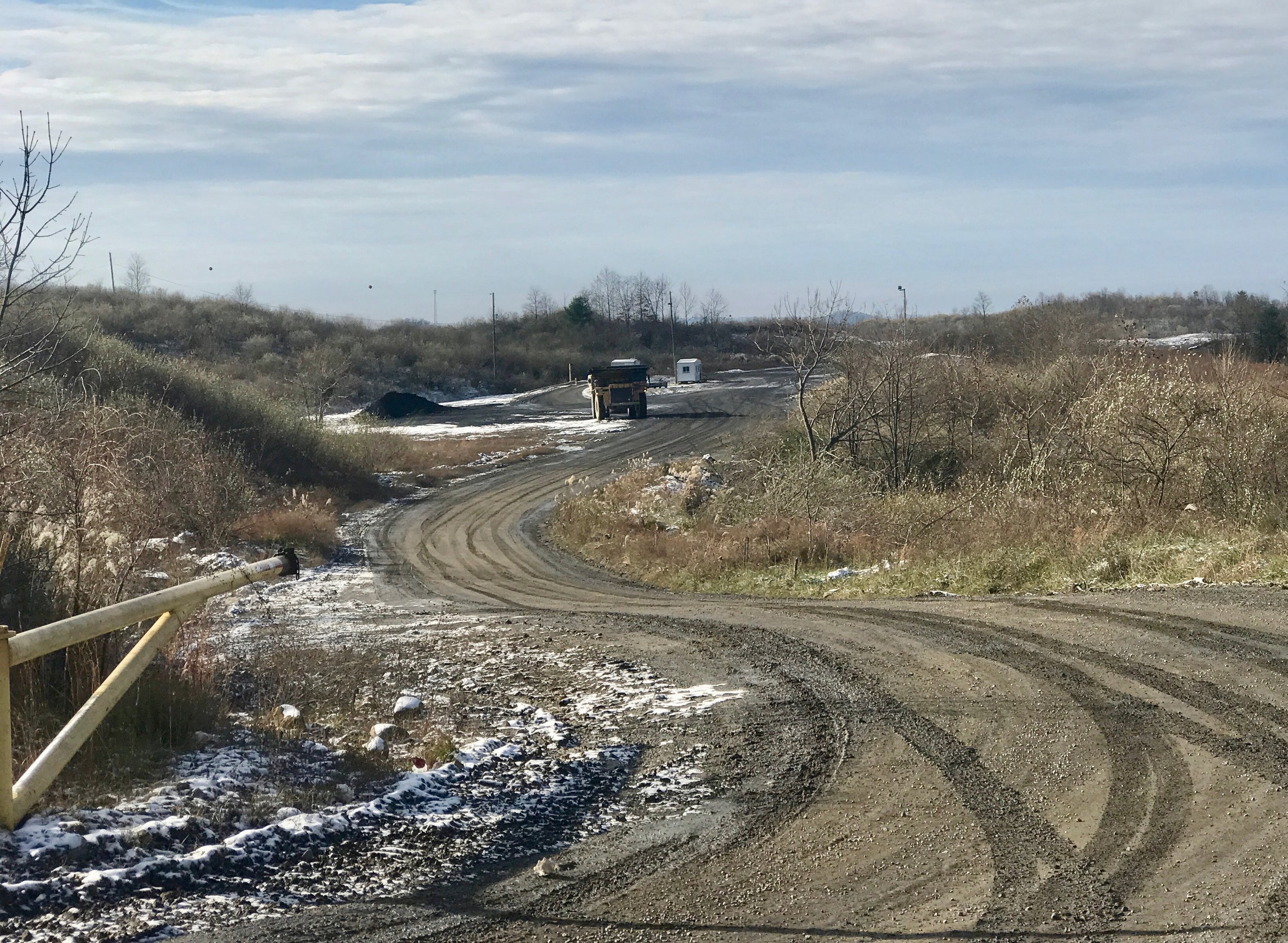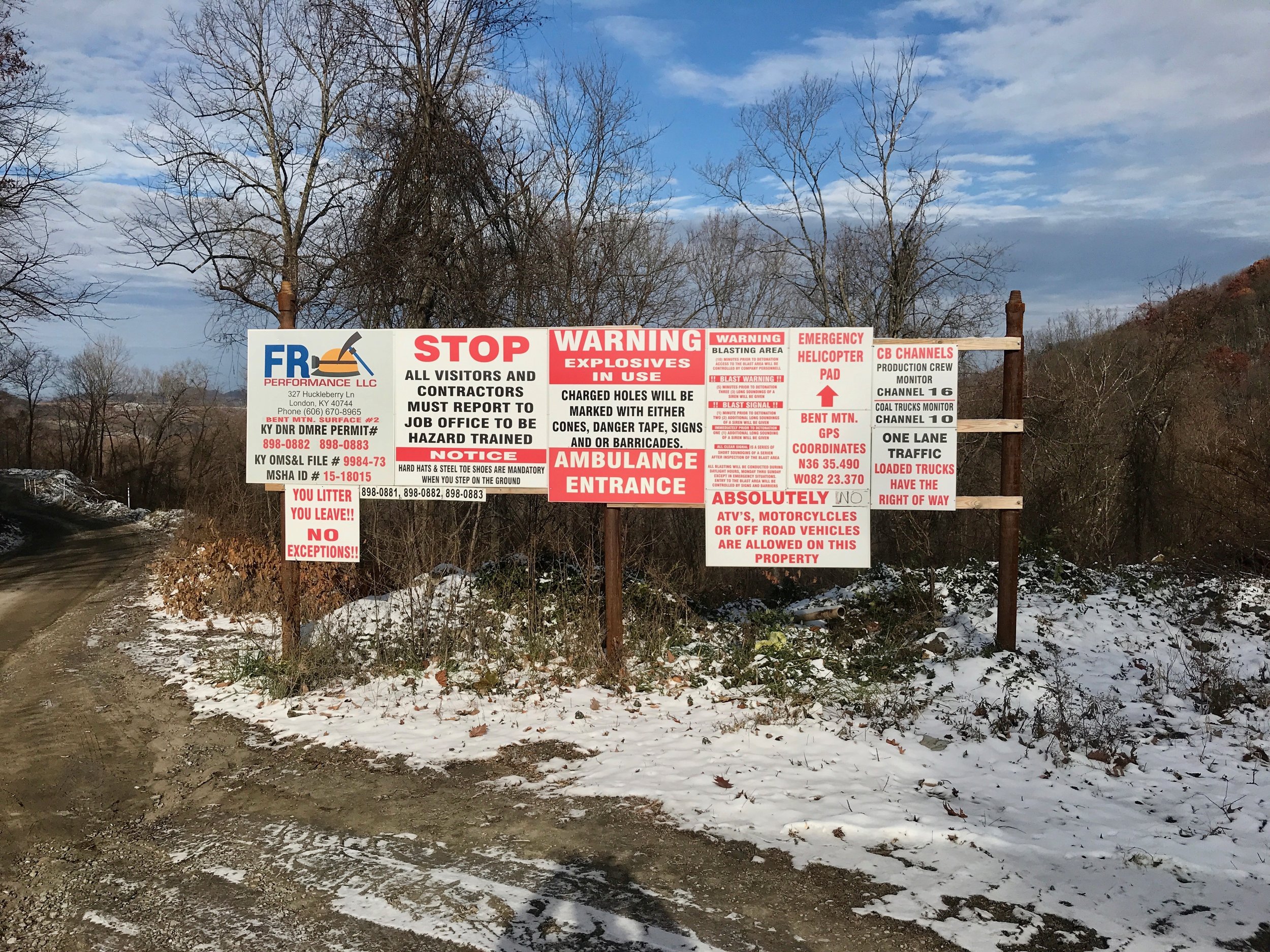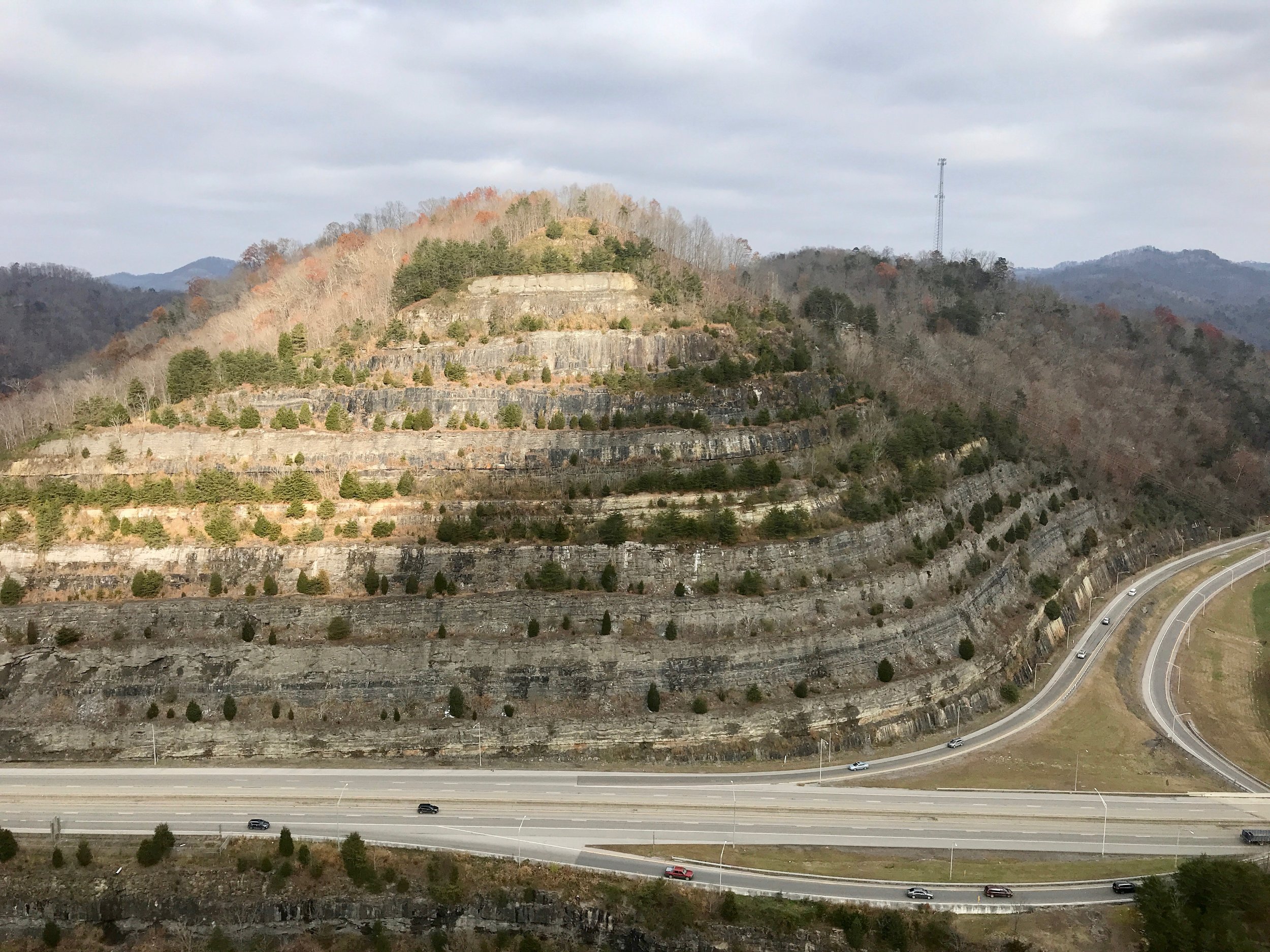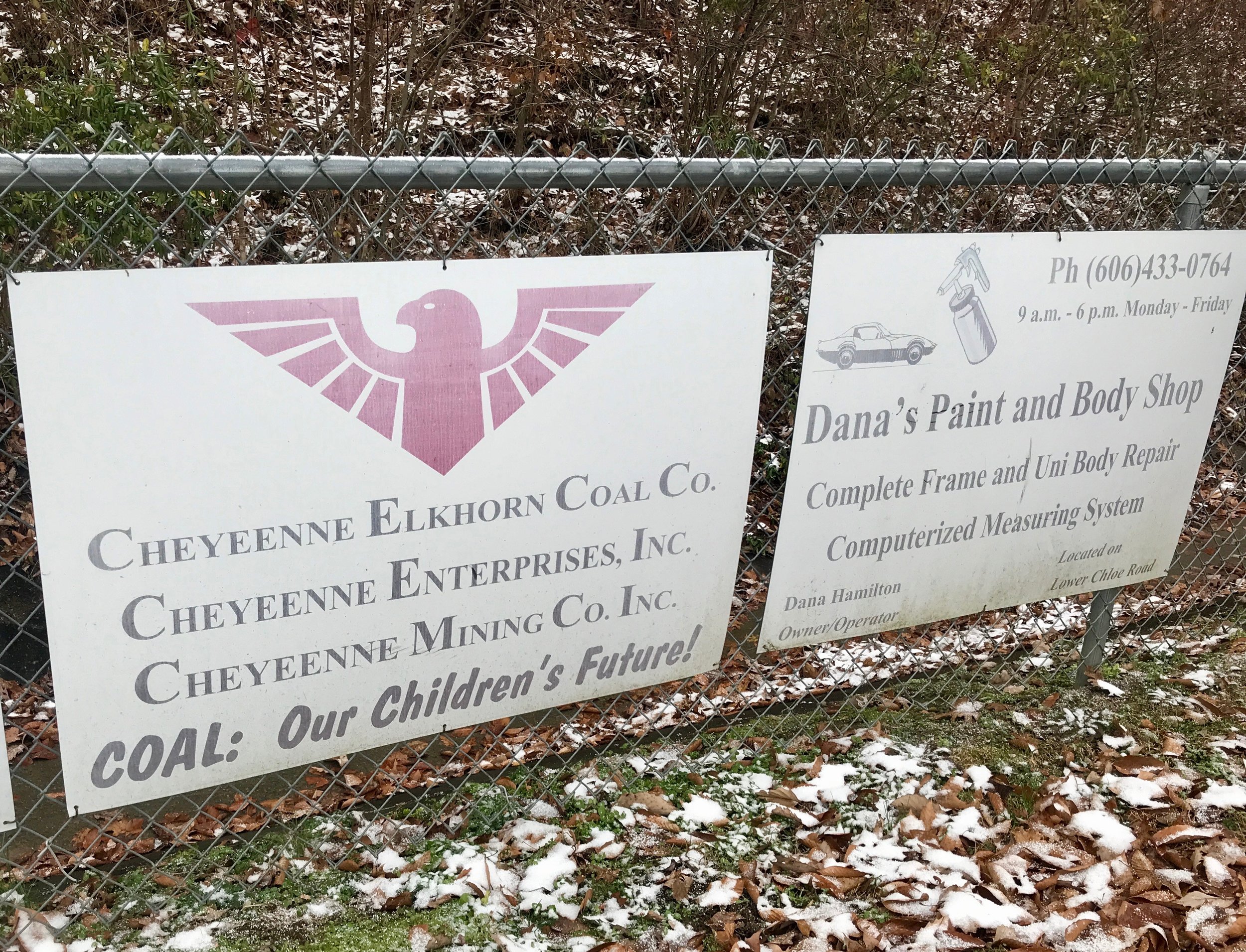By Rick Holmes
Dec. 7, 2018
Pikeville, Ky. – They call this “the city that moves mountains.” Pikeville cut through Peach Orchard Mountain to relieve flooding and create more level land downtown. States have made steep cuts across mountainsides all over Appalachia to build new four-lane highways. Other mountains have been moved to get at the coal underneath them.
For 100 years, the hardy miners of Appalachia dug tunnels under the mountains, breaking off chunks of coal with nine-pound hammers. Then the coal companies learned they could get at those coal seams more quickly with dynamite, giant earth-moving equipment – and fewer miners.
Coal people call it surface mining; critics call it strip mining or, worse, mountaintop removal. Early on, there were horror stories about families that had sold their mineral rights generations before, when mining happened underground, only to find coal companies removing the whole farm to get at what’s beneath. Creeks have been buried under tons of dirt pushed off mountaintops, industrial chemicals used in mining have poisoned wells and made people sick.
A murdered mountain is a depressing sight, even for those who live off coal. Nobody loves the mountains more than those who’ve always lived here. Surface mining sites are supposed to be reclaimed when all the coal’s gone, with steep walls knocked down and topsoil put back in place. But coal companies don’t always follow through.
Bent Mountain, north of Pikeville, is an example. It has been decapitated, leaving a 1,000-acre scar. Kentucky regulators sued to get the owners of the Bent Mountain mine to keep their reclamation promises, but the company is still dragging its feet.
In Central Appalachia, coal has been a blessing and a curse. People raised here care about family and heritage, and coal is wrapped up with both. Daddy worked in the mines, just like his daddy and his daddy before that. Coal supported their families for generations. They don’t have much patience with outsiders who badmouth coal or politicians who want to regulate it to death.
“God put that coal under those mountains for us to use,” says Roger Ford, whose family roots in Pike County go back centuries. “We use the same techniques to cut roads as to dig coal, but you never see an environmental group protesting a four-lane highway.”
Press mountain folks a little harder though, and they may admit that granddaddy died of black lung, great-granddaddy was killed in a mine explosion, and daddy hasn’t had steady work in 10 years. And most will concede they’d rather not see their children stuck in those dirty, dangerous jobs.
The number of jobs in coal has been steadily shrinking for 30 years, as machines took over the work of miners. Production rose even as employment fell, until 10 years ago. Then natural gas became competitive, renewables began taking a larger share of the energy market and coal jobs plummeted. There were 13,600 coal jobs in eastern Kentucky in 2011; this year it fell to 3,835.
With the coal jobs disappearing, young people are leaving the mountains, Kim McCoy says, especially the brightest and best educated ones. Left behind are those too old to leave, or too invested in their homes and equipment. The young ones who stay get bored and end up addicted to opioids, said McCoy, a historian and civic leader in Matewan, W.V. Some of the older ones, too.
“We’ve watched a shadow fall over our area,” she told me.
A sponsor’s sign at Pikeville’s soccer field declares “Coal: Our Children’s Future!” But neither Ford nor McCoy believe it. They are looking for other options. McCoy hopes a proposed new four-lane highway will bring manufacturing to her small town. Ford had hoped to build greenhouses on a former strip mine, and sees a lot of potential on those sites. He’s now working in alternate energy: biofuels, wind and solar. They are hopeful, and committed.
Those seeds of hope may yet sprout on Bent Mountain. There’s a plan to build a $150 million solar farm on the site, if the coal company would just finish its reclamation work. There are jobs in solar, more than twice as many nationwide as there are in coal.
There’s a larger point, one that a lot of people in Coal Country – not to mention the White House – have a hard time accepting: Coal is the dirtiest form of energy. It poisons the air and is wrecking the earth’s climate.
Maybe God put the coal there to hold up the mountain, not to burn in a power plant and pollute the planet. Maybe the best plan is to leave it there and find other ways for the people of the mountains to make a living. Developing solar energy on the abandoned surface mines would be a fine place to start.
Rick Holmes can be reached at rick@rickholmes.net. You can follow his journey at www.rickholmes.net. Like him on Facebook at Holmes & Co, on follow him on Twitter @HolmesAndCo.



